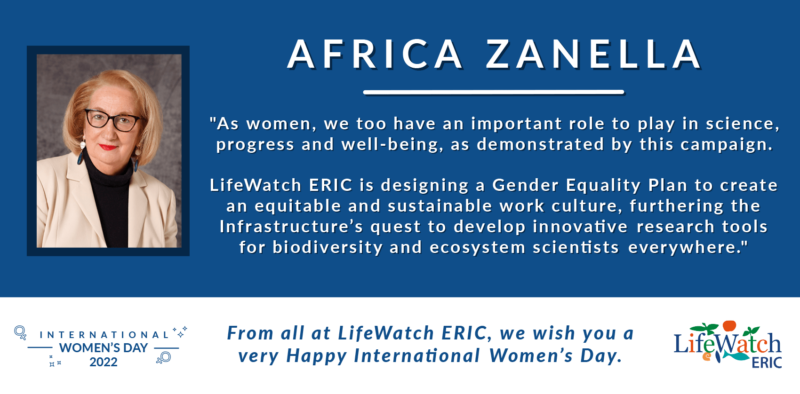
“I have been profoundly moved learning about the fantastic scientists put in the spotlight for International Women’s Day 2022. While their stories read in isolation are inspiring, it is particularly poignant to read them together, and realise that while this diverse group of women speak different mother tongues, hail from different time periods and harbour different interests, they all shared the same vision to improve the world through science, and broke the barriers put in front of them to arrive at that goal. From Marie-Anne Libert, who was not entitled to receive formal scientific training, yet went on to describe more than 200 novel taxa, to Angela Piskernik, who became the first Slovenian female doctor of biological sciences, to Emilia Chiancone, the first woman President of the Italian National Academy of Sciences, to Rita Covas, Montserrat Vilà, Tatyana Bileva, Despoina Vokou and Martina Vijver, the brilliant scientists who are powering research in Europe today.
Individually, their work has had a huge impact on their respective research fields, but together, they have profoundly influenced society as a whole, from our cultural beliefs to the economic landscape, by paving the way for future women scientists to overcome established patterns, stereotyping and unconscious bias and help to maintain a female presence in these traditionally male-dominated fields. LifeWatch ERIC has sought on the special occasion of International Women’s Day 2022 to encourage more women to pursue a career in STEM – to seek roles as researchers, investigators, thought leaders, to assist with the many issues facing our planet and our society at this point of time and ensure sustainability for the future.
By recently creating the role of Gender Equity Officer, LifeWatch ERIC is going further to actively integrate a gender dimension in Research and Innovation, and a more gender-balanced approach to its work, in fostering equality in scientific careers, and diversity and inclusion in line with European Commission guidelines as well as the UN SDGs and campaigns (Gender Equality Today for a Sustainable Tomorrow). As women, we too have an important role to play in science, progress and well-being, as demonstrated by the women described above. It is my job and pleasure to work with the LifeWatch ERIC team to design and implement a Gender Equality Plan, to create an equitable and sustainable culture for all talent at work, and to further the Infrastructure’s quest to develop innovative research tools and systems for biodiversity and ecosystem scientists everywhere.
From all at Lifewatch ERIC, we wish you a very Happy International Women’s Day 2022.”